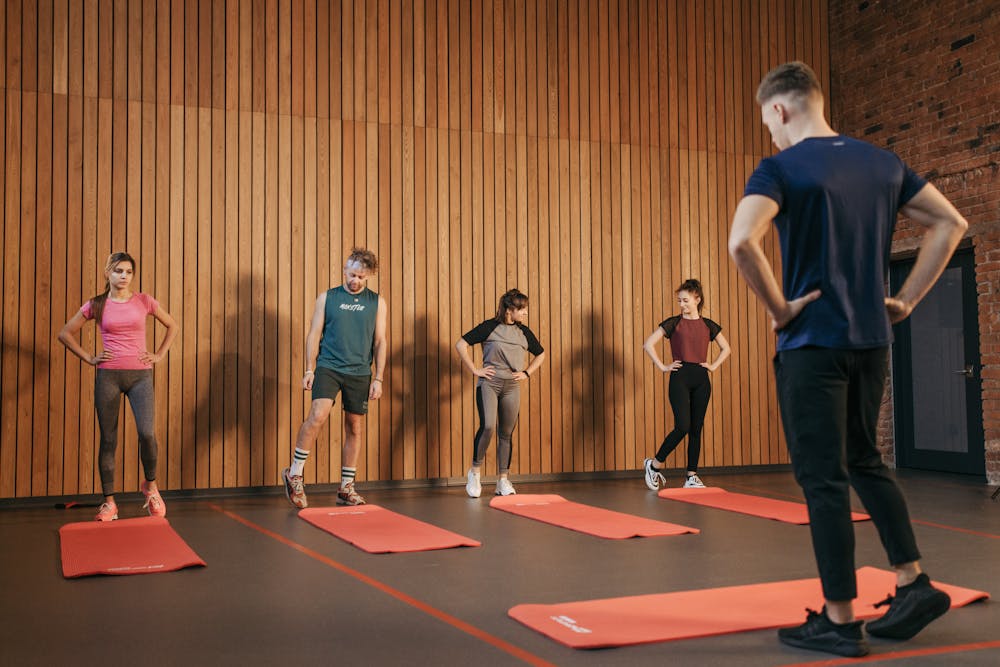Reviews
Exploring the Psychological Benefits of Regular Physical Activity

It’s important to stay active during a busy life. With many of our jobs being completely sedentary, sitting all day long at our desks, being active and exercising becomes increasingly important. Regular strenuous exercise is great for your physical health, as all the evidence says. It can lower your risk of developing serious and chronic illnesses, lower cholesterol, and overall boost your health and well-being. But what about the psychological benefits of regular exercise?
Any healthcare professional, from general practitioners and nurses qualified through online DNP programs to mental health specialists, will tell you about the multitude of health benefits of regular physical activity.
This helpful article will discuss the mental health benefits of exercise, so if you’re interested in this topic, continue reading to learn more.
What is Exercise?
Exercise is any physical activity where you move your body. It can be anything from a brisk walk around your local neighborhood, going for a run, hitting the gym, a yoga session, boxing, martial arts, swimming, or more. The idea is to work up a sweat. Most research suggests that doing enough exercise a few times a week at a pace high enough to break a sweat is where you see the most benefits.
The Psychological Benefits of Exercise
Exercise can produce excellent outcomes for your mental health. Almost immediately, as you exercise, your brain releases those feel-good chemicals called endorphins through your bloodstream. These chemicals give a feeling of well-being and satisfaction, which is why you feel great during and after intense exercise. Due to these chemicals, you will also feel relaxed and calm after exercising. Most people who engage in regular strenuous exercise can attest to this feeling of satisfaction and calm.
Furthermore, there is some fascinating biochemistry behind the mental health benefits of exercise. This is because exercise increases the levels of certain chemicals called endocannabinoids in your bloodstream. Unlike the endorphins we mentioned earlier, which are released only during exercise, these endocannabinoids can pass easily through the cellular barrier separating the bloodstream from the brain, which is called the blood-brain barrier, where these mood-improving chemicals promote short-term psychoactive effects such as reductions in anxiety and feelings of calm. For this reason, exercise is incredibly rewarding, and regular running or other intensive exercise can have long-term benefits to your mental health and wellbeing.
Exercise Reduces Your Stress Levels and the Impact of Stress

Stress is a normal part of life. You might get stressed out at work, at home, or even while navigating social situations. And while stress is to be expected, you don’t have to suffer through the negative impacts. Engaging in regular exercise can be one simple way to ease the pressure and do something positive for both your body and your mind.
Exercise reduces the negative impacts of stress. It can offer relief while your body is reacting to stress, such as the fight-or-flight response that floods your brain with adrenaline and cortisol. It can also help your body’s systems practice working together when dealing with stress.
Exercise can have positive effects on your body, including your heart and blood vessels, digestive system, and immune system. It helps protect against the harmful effects of stress. For instance, it can lower your resting heart rate and blood pressure and help improve your immune system. Exercise can even lessen the effects of aging.
It’s meditation in motion. After a game of squash, badminton, a swim, or a long walk, run, or yoga session, you feel like you’ve forgotten the day’s irritations and your worries. You may also find that you focus only on your body’s movements and breathing during exercise, forgetting about your problems for a moment.
As you start regularly releasing your daily tensions through movement and physical activity, you will find that this focus on a single task helps you stay calm and focused. Exercise can even increase your energy, optimism, and overall outlook on life. It can help you focus and think clearly, and it can even help you use your imagination and improve problem-solving skills, with positive benefits at work and in your personal life.
Exercise improves your mood. Exercising a few times a week can increase your self-confidence, help improve your mood, assist you in relaxing, and lower some symptoms of mild depression and anxiety. Exercise can also improve your sleep, which is often impacted by stress, depression, and anxiety. All of these exercise benefits can ease your stress levels and help you better manage your body and your life, leading to excellent benefits for your psychological health.

How to Create an Exercise Routine
The first thing you should do is talk to a qualified health professional, such as your physician or an exercise physiologist. They can help you determine what type of exercise works well for you. For instance, if you have knee issues or back pain, then running is probably not the best form of exercise for you, and gentle swimming or yoga may be better.
You’ll also want to build up slowly instead of diving in the deep end and starting with rigorous exercise, particularly if it’s not part of your routine already. You might start with a brisk walk around the block before you start jogging or running. The idea here is to slowly build up your energy and stamina levels before you can engage in a longer exercise session.
Also, making sure you enjoy the exercise you’re doing is key to building and maintaining the routine long term. Not to mention, you’ll enjoy it more and will increase the benefits on your mental and psychological well-being. Whether you’re cutting laps in the pool, doing group fitness like boxing or HIIT workouts, taking a dance class, or signing up with your local yoga and pilates studio, the opportunities to get your body moving in a way that you’ll love are endless.
Are you ready to take charge of your mental health and discover the benefits that exercise can offer?

-

 World1 week ago
World1 week agoEthiopian volcano erupts for first time in thousands of years
-

 Health2 days ago
Health2 days ago8 kittens die of H5N1 bird flu in the Netherlands
-

 Legal7 days ago
Legal7 days agoUtah Amber Alert: Jessika Francisco abducted by sex offender in Ogden
-

 US News6 days ago
US News6 days agoExplosion destroys home in Oakland, Maine; at least 1 injured
-

 Health7 days ago
Health7 days agoMexico’s September human bird flu case confirmed as H5N2
-

 Legal3 days ago
Legal3 days ago15 people shot, 4 killed, at birthday party in Stockton, California
-

 World7 days ago
World7 days agoWoman killed, man seriously injured in shark attack on Australia’s NSW coast
-

 Health6 days ago
Health6 days agoMarburg outbreak in Ethiopia rises to 12 cases and 8 deaths




